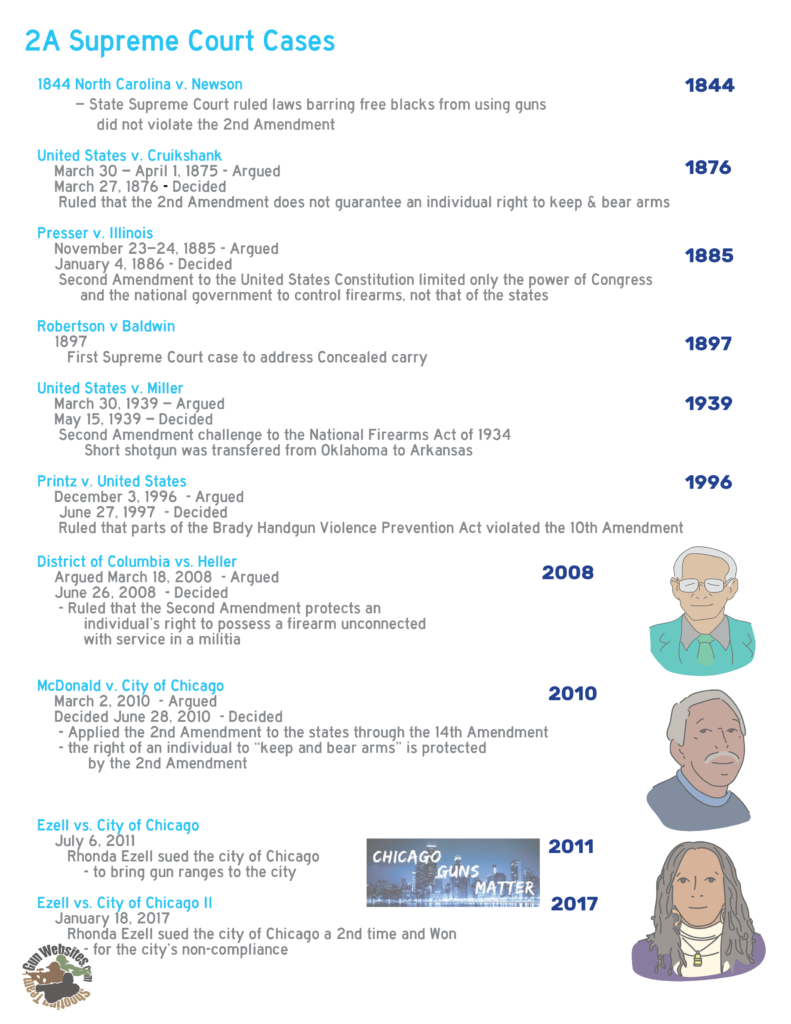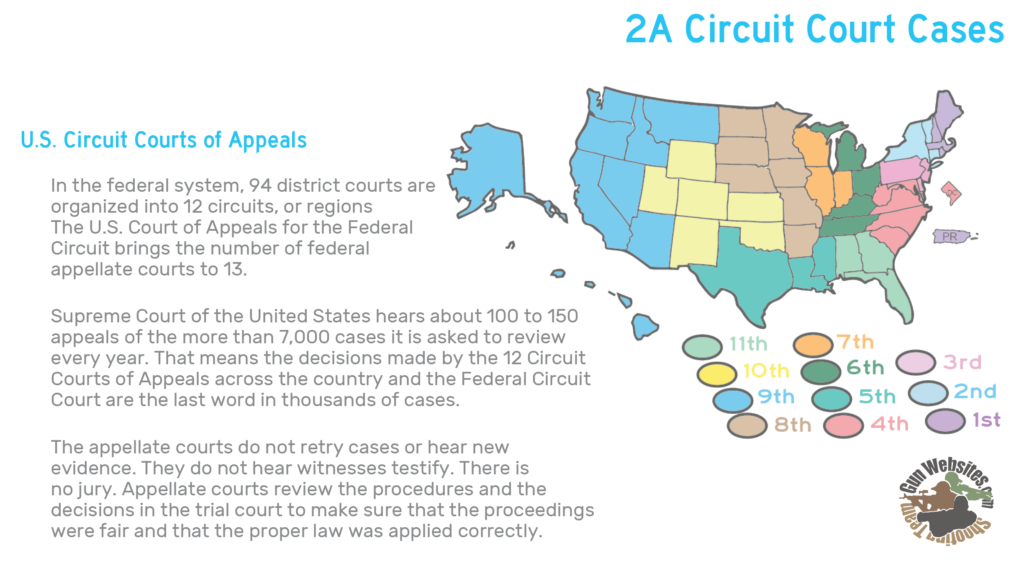In 2010, the court extended the Heller decision to the states in the case of McDonald v. City of Chicago, holding that the Second Amendment applies to state and local governments as well as the federal government. This decision invalidated Chicago’s handgun ban, which had been in place for over 30 years.
Since then, the Supreme Court has declined to hear several cases related to Second Amendment issues, including challenges to state laws that restrict the sale of assault weapons and high-capacity magazines. However, the court has agreed to hear a case in the 2021-2022 term that will address the issue of concealed carry permits, specifically whether the Second Amendment requires states to issue permits to individuals who meet certain qualifications.
Overall, the Supreme Court’s decisions related to Second Amendment issues have had a significant impact on gun laws and regulations in the United States

- United States v. Cruikshank1876 the Bill of Rights did not apply to private actors ...Read more...
- Presser v. Illinois1885 Second Amendment limited only the power of national government, not ...Read more...
- Beard v. United States1895 Self-Defense requires No Duty to Retreat Supreme Court case where self-defense ...Read more...
- Robertson v Baldwin, an 18971897 First Supreme Court case to address Concealed carry Robertson v Baldwin the ...Read more...
- United States v. Miller1939 Upheld a federal ban on sawed-off shotguns March 30, 1939 United ...Read more...
- Printz v. United States1997 Ended the Brady Bill Burden to states Argued December 3, 1996Decided ...Read more...
- District of Columbia vs. Heller2008 Second Amendment protects an individual’s right to possess a firearm Argued March 18, 2008 Decided June ...Read more...
- McDonald v. City of Chicago2010 Challenged Chicago’s gun registration Argued March 2, 2010Decided June 28, 2010 561 U.S. 742 Applied ...Read more...
- Ezell vs. City of Chicago2011 Rhonda sued Chicago to bring gun ranges into the city July ...Read more...
- Ezell vs. City of Chicago II2017 Ruled that the city of Chicago’s ban on gun ranges ...Read more...
Circuit Court Cases
- 1803 ts first truly significant case, the Supreme Court asserted its
power to overturn laws of Congress with the ruling written by our great
Chief Justice John Marshall, which said simply: “All laws repugnant to
the Constitution are null and void.” (Marbury v Madison, 5 US 137 (l803) - 1895 the Supreme Court ruled that individuals have a right to
possess and use firearms for self-defense. (Beard v United States, 158
US 550) - 1897 the court ruled that the right to arms is an “ancient”
and “fundamental” right, a right which was “inherited from our English
ancestors” and has existed “from time immemorial.” (Robertson v
Baldwin, 165 US 275) - l914 the court ruled by implication that even resident aliens
have the right to possess “weapons such as pistols that may be supposed
to be needed occasionally for self-defense.” (Patsone v Pensylvania,
232 US 138) - l921 the Supreme Court decided that a person facing a deadly
attack may use lethal force in his self-defense, adding: “Detached
reflection cannot be demanded in the presence of an uplifted knife.”
(Brown v United States 256 US 335) - 1939 the Supreme court ruled that when called for militia duty,
“these men were expected to appear bearing arms supplied by themselves
and of the kind in common use at the time.” (U.S. v Miller, 307 US 174) - l968 the court ruled that a convicted felon is exempt from
obeying gun registration laws, that “a proper claim of the
constitutional privileged against self-incrimination provides a full
defense to prosecutions either for failure to register a firearm….or
for possession of an unregistered firearm.” (Haynes v US 390 US 85)
- l990, the Supreme Court ruled that the term “the people”
explicitly as used in the Second and other Amendments, in the Preamble,
and elsewhere in the Constitution, meaning all the individuals who make
up our national community. (U.S. v Verdugo-Urguidez, No. 88-1353) - “The United States is entirely a creature of the Constitution. Its
power and authority have no other source. It can only act in accordance
with all the limitations imposed by the Constitution.” (Reid v Covert,
354 US l (1957)
